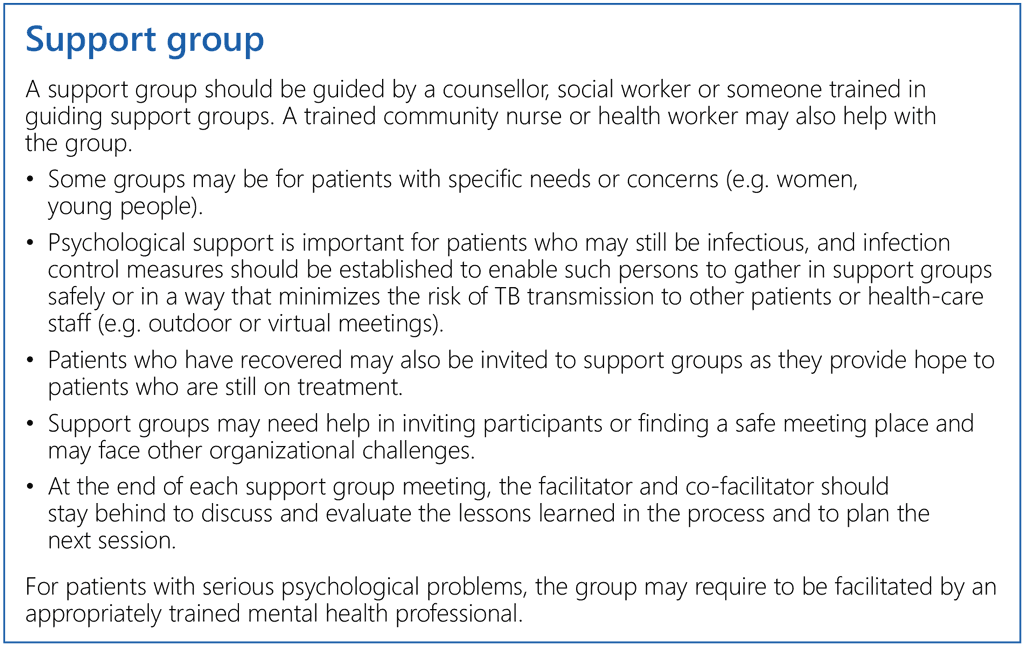Перекрёстные ссылки книги для 3.1.2 Psychological and emotional support
Dealing with TB and its treatment can be emotionally devastating for patients and their families. As a result, there is immense distress that affects the quality of life of patients and that may also interfere with the way they follow their treatment.
Emotional support usually refers to having close relationships with family and friends, with whom one can talk and feel loved and cared for. Psychological support is based on a skill set whereby trained personal can help alleviate distress. Psychological support tries to help with thought, emotional and behavioural concerns that may arise because of the stress of being diagnosed with TB, because of the treatment, or because of other life situations or stresses caused by TB. Informal psychological support can be provided by physicians, nurses, treatment supporters, family or community members by building a relationship with patients based on understanding and compassion to help them deal with psychological challenges in life, solve problems and lessen sources of stress. This kind of support may also help patients to follow their treatment plans and gain the skills needed to deal with stigma and discrimination. Details of techniques to provide psychological support are further discussed in Section 4.5.
For formal psychological support – particularly if informal support is not successful, the impact of the challenges is severe or mental health problems are suspected (e.g. depression, substance and alcohol misuse, and persons experiencing post-traumatic stress disorder) – some TB patients may need to be referred to mental health services. There is also a close association between common mental disorders, including substance use disorders, which is described in Section 4.5. Therefore, it is essential to have a comprehensive assessment and referral system between TB, mental health services and community support.
Formal methods of providing psychological support can be one-to-one counselling sessions or support groups assisted by counsellors. Support groups may allow patients with TB to meet and socialize with other patients, including those who have recovered from TB, and provide support to each other as well. Further details are discussed in Section 4.5 on Counselling to provide psychological support.

 Обратная связь
Обратная связь